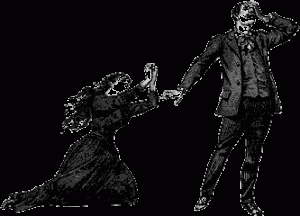I’ve mentioned before that I am part Italian. My paternal grandmother came off the boat from Naples as a teenage girl in the 1920s. She settled in New York City, like many Italian immigrants did, and lived in a tiny apartment in Greenwich Village for fifty years.
In her old age, she developed a reputation as a cantankerous character who snapped at people for littering the sidewalk, often unleashing a string of Italian vulgarities and insults at them.
But that is another story.
The point is that many of my Italian grandmother’s descendents, including me, have achieved a much higher standard of living then she did. This is despite the fact that my grandmother was basically a high school dropout who spoke no English. As an Italian immigrant, she represented the fears of the established Americans, who were not terrible pleased at the new swarthy arrivals.
Yes, that sentiment sounds terribly familiar.
So it is most interesting that “a wealth of data suggests that Latinos, who make up fully half of the immigration wave of the past century, are already following the classic pattern for American immigrants.”
And that pattern is that immigrants arrive “in this country in great numbers, most of them poor, ill educated and, in important respects, different from native-born Americans. The children of immigrants, however, become richer and better educated than their parents and overwhelmingly speak English.”
From both Italian and Hispanic perspectives, this is true of me. And it is also true of my son, because “the grandchildren look ever more American.”
Of course, there is no magical guarantee that the descendants of Latino immigrants will completely close the gaps in education and income that separate Hispanics from other ethnic groups.
But it is certainly moving in that direction. For example, in the last decade the number of Latinos graduating from college has doubled. And second-generation Latino households are much closer in median income to other groups than their immigrant parents were.
The researchers conclude that the so-called Hispanic challenge is a real phenomenon. But rather than being an unprecedented cultural crisis, it is analogous to the Italian challenge, Chinese challenge, or Jewish challenge of the past.
Indeed, “over time, the specific challenges — legal, cultural and educational — have changed. Yet the core parts of the story have not, including its trajectory.”
















